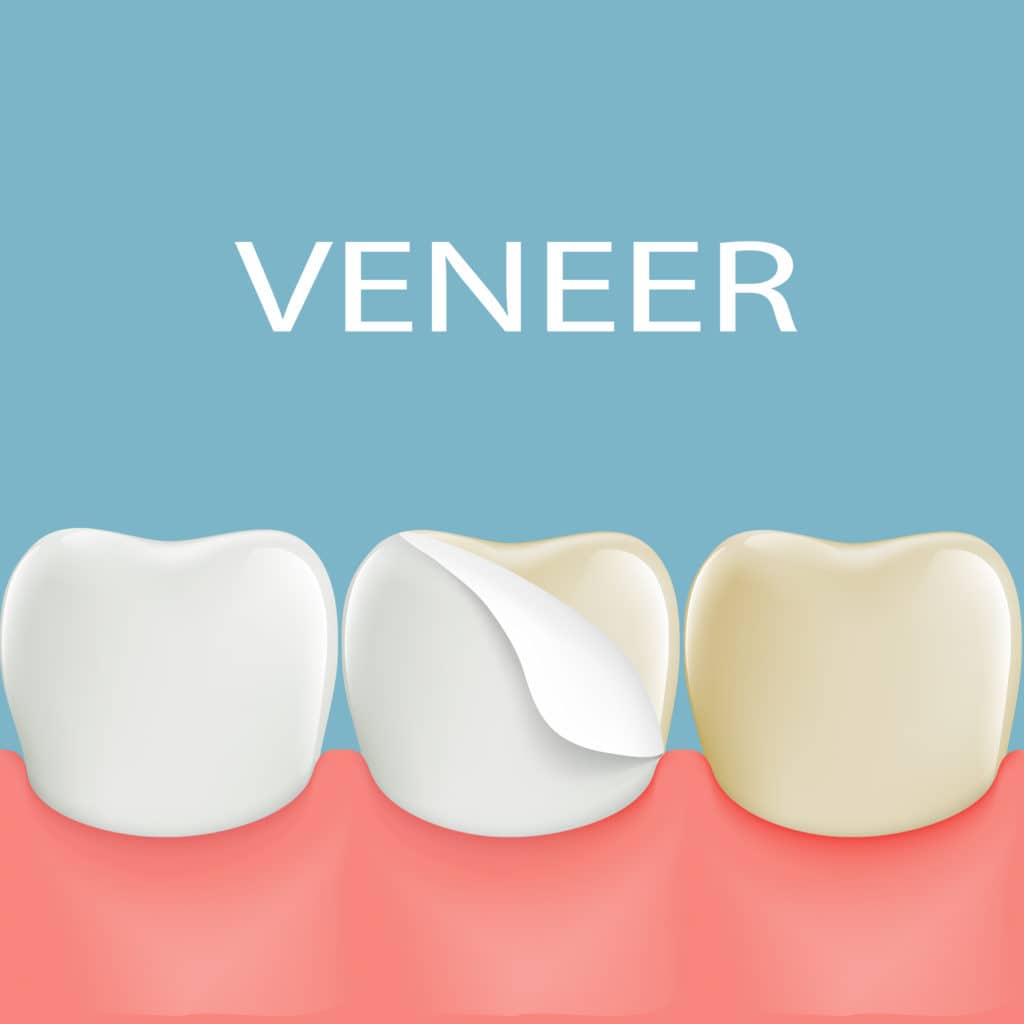Dental Veneers
Since one of the first things that others notice about you is your smile, it can become important to you to have a nice smile. Teeth that are stained, chipped, misaligned or have gaps can make one feel self-conscious and less comfortable about speaking with others. Fortunately, there are several cosmetic dental procedures one can partake of in order to resolve these issues, and one of them is dental veneers.

What are Dental Veneers
As stated by the American Academy of Cosmetic Dentistry, dental veneers are thin pieces of either porcelain or plastic that are placed over the surfaces of teeth in order to recreate the natural look of healthy teeth. Properly designed and fitted veneers can be just as strong and resilient as natural tooth enamel, which means that they not only serve a cosmetic purpose but also a functional purpose. They can be used over teeth that are discolored, fractured or chipped and in some cases dental veneers can be a better option than dental crowns or braces, closing gaps and correcting small misalignments.
There are two main types of dental veneers:
- Porcelain veneers. These are often considered the more desirable option as they resist staining and are quite durable–lasting anywhere between ten to twenty years if well cared for. However, they are fairly expensive and since the process to place them on the teeth is irreversible, the individual must be prepared to replace them at some point in the future. Also, placing porcelain veneers requires at least two trips to the dentist, as an impression of the recipient tooth must be made and sent to a dental laboratory, which will fabricate the veneer to fit that exact tooth perfectly.
- Composite resin veneers. These are an alternative to porcelain veneers that is more affordable, but not as stain resistant or durable. However, unlike porcelain veneers, composite resin veneers are prefabricated and can be placed in a single dentist visit.
In order to place a dental veneer, your dentist will:
- Administer local anesthesia if it is determined to be necessary. This only occurs when the patient is very sensitive, anxious or uncomfortable with dental work, and is not usually required for veneer placement.
- Clean and prepare the tooth. Your dentist will thoroughly clean the tooth upon which the veneer will be placed, and remove a small amount of enamel in order to make room for the veneer. It is because tooth enamel cannot grow back that this process is irreversible.
- Take an impression of the tooth (in the case of a custom veneer). Custom veneers are made to fit perfectly over the tooth they are made for, so an impression is taken and sent to the dental laboratory. Your dentist may choose to place a temporary veneer over the prepared tooth to help protect it until your custom veneer is placed.
- Clean and prepare the tooth. Once you return to the dentist, he will remove your temporary veneer if necessary and then thoroughly clean your tooth with pumice and water.
- Place the veneer on the tooth. The veneer itself is etched to better adhere before it is thoroughly rinsed and dried. An adhesive is placed on the veneer, and the veneer is placed on the tooth. Your dentist will check to ensure fit and contour before proceeding.
- Cure the veneer. Using a special dental tool, the veneer is light cured for sixty seconds so as to ensure it is fully attached to the tooth structure.
- Make final adjustments. Once the veneer is fully attached to the tooth, your dentist will check for and remove any excess material and polish the margins of the veneer.
Your dentist may ask you to return a few weeks after having a veneer placed so that he can perform a final check for comfort and fit.
In order to ensure that your dental veneer lasts for as long as possible, you should take good care of it. This includes twice daily brushing with a non-abrasive toothpaste, once daily flossing, and dental examinations and cleanings twice a year. It is also helpful to reduce your intake of coffee and other staining drinks and foods.
For more information about dental veneers and to find out if they are right for you, contact Dr. Nurminsky today.
